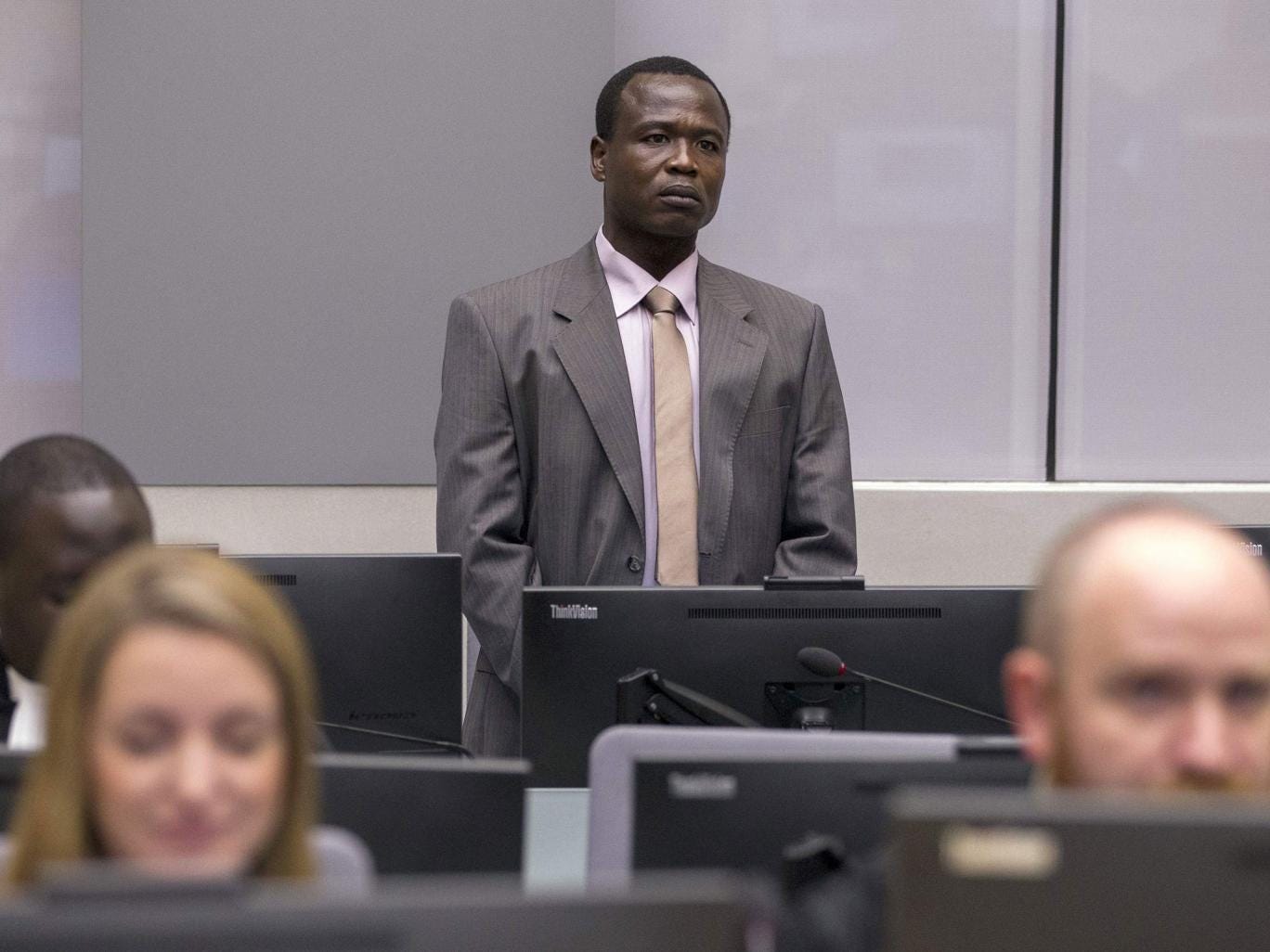
In classrooms and community halls, hundreds of men, women and children stared at the face of a child soldier turned alleged war criminal.
For many, the memories of the Lord’s Resistance Army’s reign of terror in Uganda were still raw. Appearing for the first time at The Hague, the proceedings beamed across Uganda, was Dominic Ongwen, the rebel leader who is accused of using rape to coerce children into becoming soldiers.
The 40-year-old faces 70 counts of war crimes and crimes against humanity at the International Criminal Court. It heard how he slaughtered civilians while he commanded the Sinai Brigade of the Lord’s Resistance Army (LRA). The bloodshed even included cases of cannibalism, prosecutors said.
It is claimed Mr Ongwen was abducted by the LRA when he was just 10, eventually rising through the ranks of the movement under the rule of the warlord Joseph Kony. At the hearing to determine whether Mr Ongwen should face a war crimes trial, the prosecutor Ben Gumpert said Mr Ongwen had led attacks on four camps where refugees had sought shelter from the LRA in 2003 and 2004.
“Witnesses tell of how he instructed his escorts to administer dreadful beatings and ... even, on at least one occasion to kill, cook and eat civilians who had been abducted in attacks,” Mr Gumpert said. He said the LRA deliberately targeted civilians in its conflict with Ugandan government forces, murdering indiscriminately, abducting children to turn them into killers “steeped in blood”, forcing girls and women into “marriages” with fighters.
Mr Ongwen, first indicted in 2005 and sent to the court a year ago after surrendering to US forces in the Central African Republic, is the only member of Kony’s murderous army in the court’s custody. Kony remains free despite years of efforts in Northern Uganda and neighbouring countries to track down and capture him.
Betty Amongi, a Ugandan politician who met Mr Ongwen during failed peace talks in 2005, told the Associated Press that she hoped his prosecution would serve as a deterrent. “This is going to be a landmark case,” she said. “If the trial is successful, it will be a good deterrent for the rest of those who think that you can wage war, you can torture people and get away with it.”
Originating in Uganda in the 1980s as a tribal uprising the government, the LRA’s rebellion is one of Africa’s longest and most brutal. The group razed villages, raped women and amputated limbs. It is especially notorious for recruiting boys to fight and taking girls as sex slaves.
Mr Gumpert said Mr Ongwen “bears significant criminal responsibility” for the attacks, during which civilians were killed and tortured, and women and children were abducted. “Nursing mothers whose babies slowed up the progress or who simply cried too loudly saw them killed or thrown into the bush and left behind,” Mr Gumpert said.
He added that Mr Ongwen played a crucial role in transforming abducted children into soldiers, whom Kony saw as “most easily moulded into the ruthless killers he needed”. They were forced to perform “acts of torture and murder designed to convince [them] they were so steeped in blood that there could be no acceptance for them back in civilian society,” Mr Gumpert said.
During the hearing, Mr Ongwen was implacable. When asked by presiding judge Cuno Tarfusser if he wanted the charges read out in court, Mr Ongwen bowed to the three-judge panel and said: “You may speak five words and only two are true, It is all going to be a waste of time.” Mr Ongwen’s lawyers will argue next week for the charges to be dropped.







